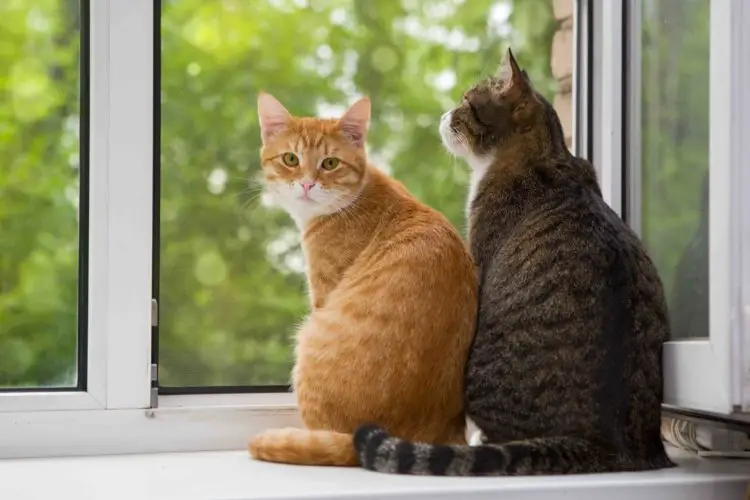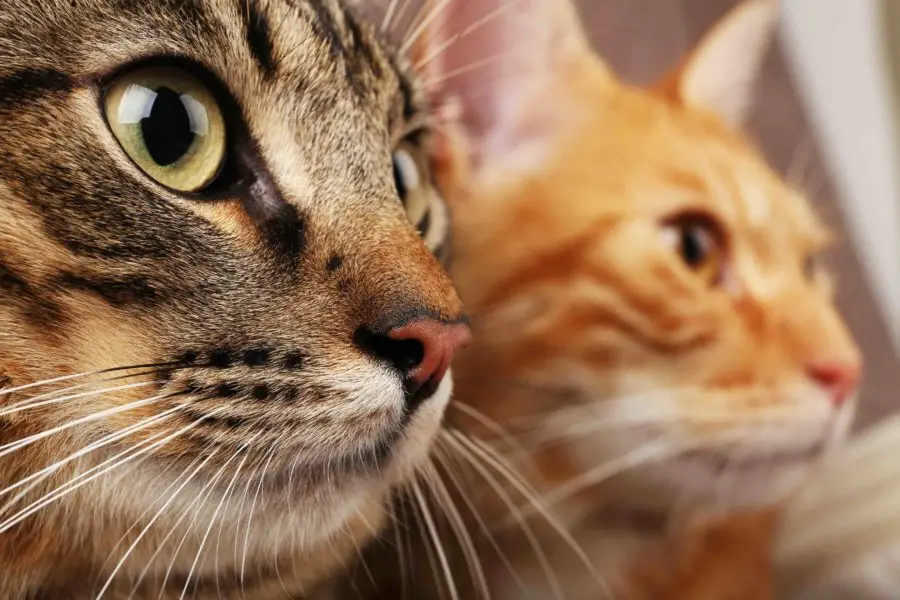Myths about FIV persist despite new scientific findings
FIV in cats continues to be widely misunderstood. Cats with FIV are often overlooked in animal shelters due to misconceptions about the disease. Studies about FIV transmission in cats conducted by Dr. Annette Litster have shown that cohabitation between FIV positive and negative cats did not result in transmission of the virus. Hopefully we can dispel some of these myths and shed some light on what the disease is, how it’s transmitted and other common questions about FIV cats.
What is FIV?
Feline Immunodeficiency Virus (FIV) is an autoimmune disorder commonly referred to as FIV. It is a lentivirus that affects cats around the world. It is estimated that up to 3% of cats in the United States are infected with FIV. Cats with FIV have a harder time fighting off diseases than unaffected cats due to a less-effective immune system.
Oftentimes FIV is confused with Feline Leukemia (FeLV) which is much more contagious than FIV. Unlike FIV, the FeLV virus is carried and transmitted in saliva, nasal secretions, urine, feces, and milk of infected cats.
Can FIV be transmitted to humans?
No. FIV is specific to cats. Only cats can get FIV from other infected cats.
Dominique Allion, Save-A-Pet Board President, adopted a stray FIV positive cat named Boot Chou. “Boot Chou’s legacy, thanks to his forward-thinking vet, was a change in policy for our great shelter: life and adoptive homes for FIV positive cats at a time where FIV cats were routinely euthanized, much less made available to become family members. On a personal level, his legacy to us was his pure love. A very sweet cat that continues to live on through all the cats he indirectly saved.” Save-A-Pet has been providing homeless pets with unconditional love and unconditional life for 45 years.

How do cats get FIV?
Cats with FIV most commonly acquire the disease through deep bite wounds, but the disease is also carried through blood and sometimes birth. Because biting is the dominant means of transmission, the disease is most prevalent in feral cat colonies with unneutered males.
According to the Cornell Feline Health Center, “Biting is the most efficient means of viral transmission, therefore free-roaming, aggressive male cats are the most frequently infected, while cats housed exclusively indoors are much less likely to be infected.”
While it is possible for kittens to contract FIV from an infected mother, studies have shown that most of them do not. Kittens under 6 months of age that test positive should be re-tested in 60-day intervals until they are 6 months of age. Many of these kittens will show a false positive because the mother passed antibodies and not the virus, on to the kitten. More often than not, kittens do not carry the virus and grow into healthy adult cats.
How long do cats with FIV live?
Cats with FIV can live just as long as non-infected cats as long as they are well-cared for. It’s important to keep FIV cats away from other sick cats and to keep them indoors to avoid viruses, bacteria or other diseases found outside. Additionally, keeping your FIV cat indoors is responsible to prevent the spread of the disease should your cat get into a fight with another cat.
Is there any treatment or special care for FIV cats?
Because FIV cats have a weakened immune system, it’s important to keep them healthy by feeding them high quality food and avoiding raw foods that can contain bacteria and parasites. If your cat becomes ill it’s important to seek immediate treatment from your veterinarian. Additionally – be sure to keep them indoors to help avoid the spread of the disease to other cats and to reduce exposure to other harmful organisms in the environment. Some veterinarians recommend vitamins and/or supplements to help cats with FIV keep their immune systems strong.
Sadly, before proper studies were conducted, such as the one conducted by Dr. Litster, cats and kittens with a positive FIV test were either euthanized or lived their entire lives in a no-kill shelter (if they were lucky). Today, as science dispels the fear, more people are willing to adopt a FIV cat and slowly introduce them into their cat family. If you’re considering adopting a cat – consider a FIV positive cat – and help to debunk this myth!
This blog contains affiliate links. For more information about third-party advertising on this site, please click here.

